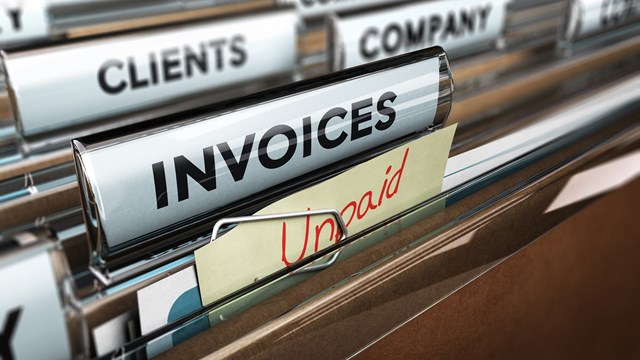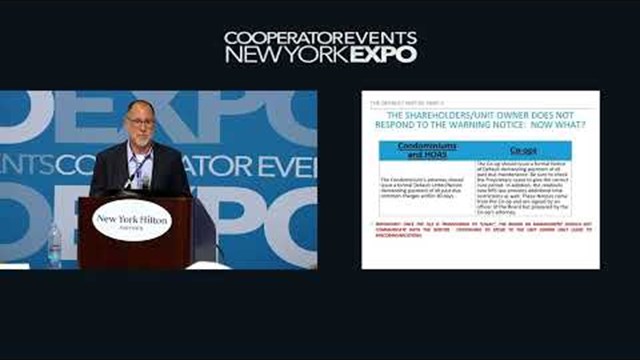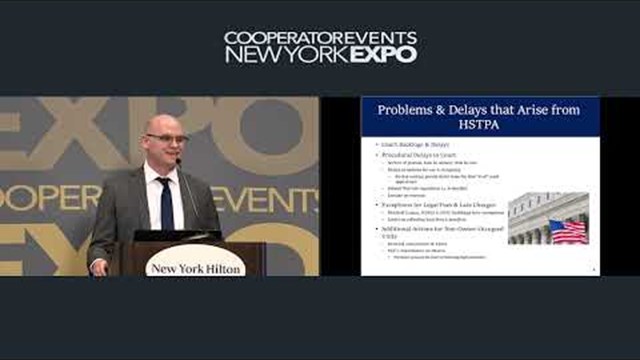While they all collect fees from residents, it’s important to remember that condos, co-ops, and HOAs are nonprofit entities; those fees go right back into maintaining, repairing, and generally running the building those residents call home. They cover staff salaries, supplies, and taxes, as well as management fees and social programming in many buildings. Co-ops, condos, and HOAs depend directly on residents’ monthly fees to pay their bills and obligations in a timely way. That’s why maintaining consistent cash inflow is critical, and why boards’ fiduciary duty obligates them to pursue payment from residents in arrears.
A Matter of Duty
“Boards have an absolute fiduciary duty to their ownership, including that to collect payments due,” says Mark Hakim, of counsel with Manhattan-based law firm Schwartz Sladkus Reich Greenberg Atlas.
Brandon Clayton, senior community manager with Associa Chicagoland in Illinois, concurs. “The board’s fiduciary duty is to the condominium community as a whole,” he says. “Those who elected them entrust them to be financially responsible with the collected assessments and fees and to follow the fiscal budget.”
The administrative mandate behind collections compliance is outlined in an association’s governing documents, which dictate the particulars of the building or HOA’s financial policies, including details on maintenance costs, common charges, and other fees that are required, along with the specific remedies that can be pursued if those payments are not made appropriately. According to the pros consulted for this article, collections must follow the process spelled out in those foundational documents. While boards may have some leeway in how arrears are collected, (more on that in a moment), they’re not at liberty to forgive them, or address them on a subjective, case-by-case basis.
The Process
“Based on their governing documents,” says John Piastra, a vice president with Associa Management in New York, “the board and their legal counsel should establish a standardized process for notifying delinquent owners of their fair obligations. This typically starts with a friendly overdue reminder after a certain number of days. A formal delinquency letter follows a month later. The threat of legal action is then made after a predetermined time.”
Scott Piekarsky, a partner with law firm Phillips Nizer located in Hackensack, New Jersey, outlines the process further: “Management handles the process first, and if that’s unsuccessful it goes to the lawyers. During this period, late fees, interest, and legal fees will accrue, and be tacked on to the arrearage. In a condo, you can ultimately get a money judgment, put a lien on the unit, and foreclose—but that’s more difficult.”
“Co-ops differ legally from condominiums, including rights and remedies for collection of arrears,” notes Hakim. “Foreclosures in co-ops are, relatively speaking, much quicker than condominiums. Ownership in a cooperative corporation is evidenced by shares, with the shareholder receiving a lease for an apartment, whereas ownership in a condominium is via deed, and the owner owns real estate. Unlike a condominium where the bank would have a first lien on the [unit], by law the co-op corporation has a first lien on the shares. That makes remedies easier and quicker, including contacting a shareholder’s lender to demand payment, as the lender does not want to be foreclosed out of its lien. In condominiums, the board would have to file a common charge lien and thereafter foreclose, understanding that any mortgage lender has a higher priority than the condominium.”
Condominium and co-op regulation falls primarily under state control (rather than federal), and laws of course differ from state to state. In Massachusetts, for instance, says Ellen Shapiro, a partner at Allcock Marcus, located in Braintree, Massachusetts, “Condominium associations have the strongest lien enforcement statute in the country. They have a six-month priority lien. If properly followed, an association’s board can enforce the lien with a forced sale of the unit ahead of the first mortgagee. Typically, a bank will wipe out the association’s lien before such a sale occurs, to protect the bank’s position. The six-month priority lien is rolling, so the association can keep rolling the lien until the unit is sold. It’s not that the association is looking to dispossess anyone; they’re looking to enforce their lien so that when one owner doesn’t pay all the others have to pay more to cover necessary expenses.” Shapiro adds that Rhode Island has a similar, though not identical, lien arrangement.
According to Piekarsky, when disputes—including those over arrears—erupt in New Jersey condos, co-ops, and HOAs, “there is a state requirement to offer alternative dispute resolution, or ADR” to resolve the issue before more aggressive remedies, including litigation, can be pursued. “And there is plenty of case law about disputes in an account,” he says. “Owners can request ADR, and the board can’t take further action until an ADR hearing is held.”
Other Options & Alternatives
While the board has the ultimate responsibility to protect the community, says Shapiro, “It always has discretion in judgment—if there’s an owner struggling financially, for example.” What the board doesn’t have, in her opinion, is the option to let an owner’s account go more than six months in arrears, as doing so could trigger a mortgagee action under Massachusetts law, which would negatively affect the association’s lien position—and represent a failure to uphold the aforementioned fiduciary responsibility.
One option that can help avoid an arrearage from growing so large that it becomes impossible for the owner to pay is a payment plan—though Adam Stern, a freelance property management consultant based in New York advises caution on offering such plans: “A payment plan can be a slippery slope,” he says. “Once the option is offered, it sets a precedent, and must be something that’s available to all residents. While the intention is to be supportive and to ensure there’s a timeline for payments to occur, it’s also important for this to be viewed from a business perspective. The best thing a board can do is assess and standardize any payment plans or leeway options to ensure that they work best for their individual property. As management, we then enforce the roadmap the board puts in place.”
Hakim adds that “recently the board of directors of a cooperative corporation I represent worked out a payment plan with a shareholder whose husband had passed away, and who was unable to access bank accounts until the estate issues were resolved. Most of the late fees were waived, provided the shareholder paid a certain amount monthly and consistently until the arrears were paid in full. Obviously the building could not do that for everyone, but on a one-off occasion with special facts, the co-op was best served by doing so.”
Paul Okonak, vice president of management services with Evergreen Management based in Manchester, New Hampshire recalls a situation where an association chose a different approach to the traditional collection letter process. “Exceptions are permitted as long as they are equal and consistent for everyone in the community. One example is a financially strapped unit owner who approached the board proactively, before a delinquency occurred. This led to them signing a repayment agreement (RPA) stating that the fees would be paid on an installment plan. While late fees or interest may still accumulate, an RPA solidifies the payment plan and precludes the need for a legal remedy—unless the RPA is breached, in which case an aggressive collection process would resume.”
Another example Okonak notes is retired owners on fixed incomes who rely on their monthly Social Security checks to pay bills—including their condo fees. As a result of how and when benefits checks are sent out, these owners may not be able to pay their dues by the first of each month—but still pay like clockwork on the fifteenth. Should that be a stable pattern of commitment and timeliness, a note can be put in the resident’s file that this is when their checks arrive each month, and to not impose late fees. A simple five-day grace period could be another solution.
Stern offers a rational approach to the overall process: “The operation of co-op and condo properties is a business—the board sets forth a budget for the year which accounts for all maintenance and common charges being fulfilled. It’s the board’s fiduciary duty to maintain that budget on behalf of their constituents. If any unpaid items do arise, it can affect the overall budget. To avoid or alleviate conflicts and in general good practice, we will reach out to those in arrears to understand the situation as a first step. Oftentimes, it’s a matter of someone just forgetting to submit a payment and it’s not necessarily a habitual occurrence.”
In the end, while collections are critical to the health and wellbeing of residential communities, these communities are still exactly that: communities. As a community of neighbors, boards need to consider the needs of all, while balancing the needs of each.
A.J. Sidransky is a staff writer/reporter for CooperatorNews, and a published novelist. He may be reached at alan@yrinc.com.










Comments
Leave a Comment